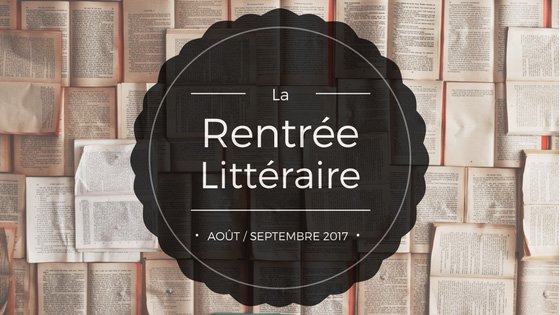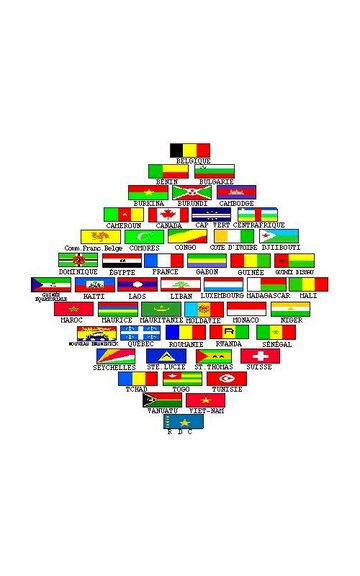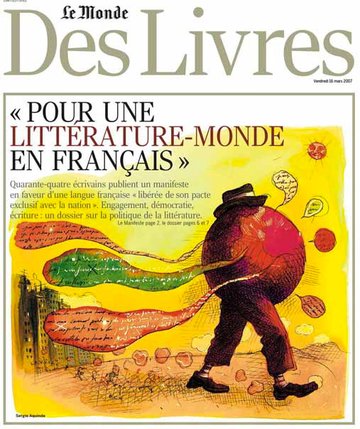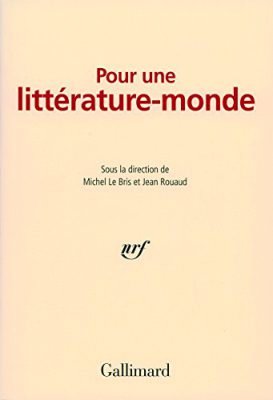À PROPOS
The French phenomenon „rentrée littéraire” – the French literary fall – marks the beginning of the literary season lasting from October until November in which publishers in France release new editions. During that period the number of newly published books reaches the impressive number of approximately 700 titles, mostly fiction.
„Local“ authors occupy a special place within that enormous production pool, along with a whole range of authors that publish in France and in French, although they originally come from other countries and cultural backgrounds, and whose works are usually categorized as Francophone. This is the case of world-renowned authors such as Henri Michaux and Amélie Notomb, Assia Djebar, Tahar Ben Jelloun, Samuel Beckett, just to name a few. In France they have found – for various different reasons - firm footing (or even a safe haven), a responsive audience and publishers interested in publishing their works.
Decades-old debate about contemporary French literature, which integrated the so called Francophone literature – written in French, but outside of France - into its corpus, has shown us, especially through the lens of post-colonial studies, that French literature actually constitutes only a part of Francophone literature that nowadays some scholars and writers deem too limiting in scope, especially when it comes to the literature of the French overseas departments and former French colonies where rather powerful and distinctive literature is being produced. The question remains – why?
For that reason, this year's Book Fair(y) would like to introduce contemporary Francophone voices to Croatian audiences and publishers, and call attention to authors who write about issues that are ever- present at the Fair and unavoidable within the context of current political and literary affairs, such as colonialism and post-colonialism, relation to others, centre-periphery relations, power, migrations, and so on. In this respect, the 190th anniversary of Goethe's idea of „world literature“ creates the opportunity to approach it from a different angle and make an attempt at defining it, given that French and Francophone literature, affected by heated debate over terms and classifications, can serve as an example of world literature written in one language.
In May 2007 a manifesto called „Toward a World Literature in French“ was signed by 44 authors who wanted to draw attention to all the shortcomings of Francophone literature as this term cannot encompass all historical, diachronic and synchronic, thematic and linguistic pluralities of past and present literary production in French. Now, ten years later, we can join the petitioners in their search for answers offered by contemporary authors who write about the globalized world of hybrid identities or modes of being in a heterogenous world; reflect on literature’s ability to create new possible worlds and realities; or go over what it means to us nowadays and how we study it and talk about it. Furthermore, we can once again explicitely address the conditions of its production, distribution, and valorization within a preexisting framework still functioning, despite various attempts at diversification, as literary center.
Contemporary French literature rests on numerous formal innovations from a past that left a permanent mark on world literature. It particularly draws on 20th century French literature that gave rise to literary, artistic and philosophical movements such as Surrealism, Avant-garde, the New Novel, the Theatre of the Absurd, Existentialism, Post-Structuralism, Deconstructivism, etc.; 21st century French, or, rather, Francophone, literary preoccupations are not only evident when it comes to themes reflecting today's globalized world - such as intercultural dialogue, precarity, individualism, colonialism, etc. - but also when it comes to technological advancement and its impact on the very process of writing and presenting books in the digital age.
Recent literary production that is going to be showcased at the Book Fair(y) features new formal properties where sociology, philosophy, essay writing and playwriting intertwine. For example, the novel inaugurates new focal points that bring about a shift in the proverbially self-sufficient French literature with its inwardly turned eye and authors who offer their readers visions of life narrowed down to their everyday experience, rarely reflecting the everyday socio-political reality of the world.
Therefore, contemporary French/Francophone literature touches upon social engagement and keeps up with global trends. Consequently, besides bringing into focus its colonial past or post-colonial present, it joins the international literary family via its range of subjects, or, to put it simply, by going global.
In this sense, contemporary Francophone literature finds its way to the reader in multiple ways. Themes such as migrations, colonialism, capitalism or making one’s way (or not) against a backdrop of world power struggles – all of that appeals, despite linguistic particularities, to an international readership.
Franco-Croatian cultural and literary ties are deeply rooted in the past. Croatian publishers are nowadays successfully cooperating with French publishers and authors, and the number of translated books grows each year, although the market is still mostly biased in favour of ''successful'' authors. This year's programme titled À proposprovides an opportunity examine and broaden the Croatian reception of that diverse and rich literature.




